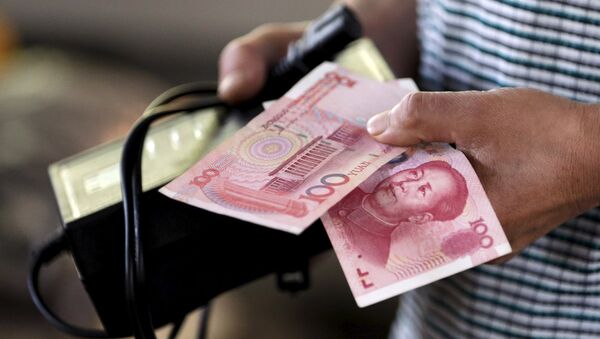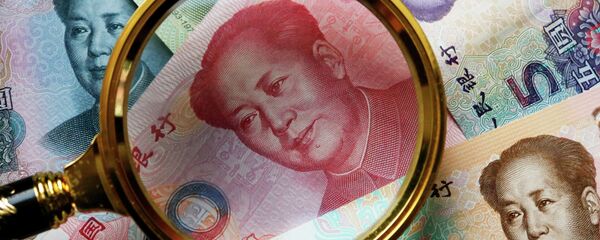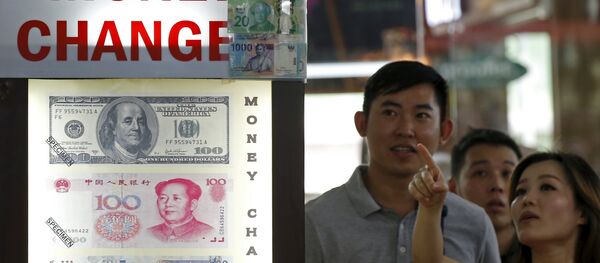MOSCOW (Sputnik) – Governor of the People’s Bank of China Zhou Xiaochuan said this week that “financial liberalization and development,” as well as the efficiency of the financial system, would continue to make the yuan an international currency by 2020.
“If the government uses this transition to its advantage and uses financial change well, then China's RMB could move from being a major international currency to being a key reserve currency within five years,” Oxford Analytics consultant Vanessa Rossi said.
Rossi pegged the bond market’s improved functioning and role to the success of China’s transition, adding that the new benchmark for the yen would allow Beijing to fully open its capital account.
The University of Sydney’s China Studies Center director Kerry Brown said the yuan, which passed Japan’s yen last month as the world’s fourth-most traded currency, “still only accounts for 1 percent of global currency flows.”
“The question is whether China will want to open up its capital account much more in the coming five years,” Brown said.
The academic cited risks of exposing the domestic Chinese economy to outside forces “in ways which the government might regard negatively at the moment,” and risks associated with “too steep, too quick” depreciation.
China launched its China International Payments System (CIPS) in September to settle accounts in the yuan. The move is part of a series of government reforms to reduce dependence on the US dollar, liberalize markets and meet the International Monetary Fund’s (IMF) Special Drawing Rights (SDR) criteria.
An IMF spokesman told Sputnik recently that it expects to decide on whether to expand its SDR currency reserve basket to include the yuan by the end of November.




